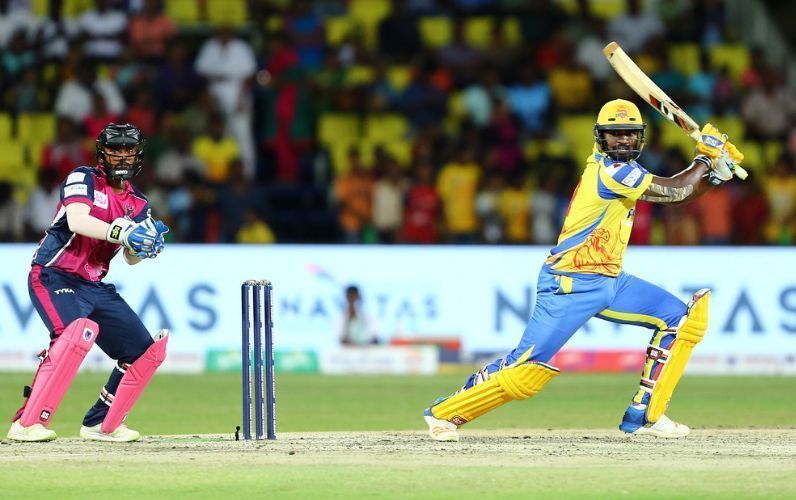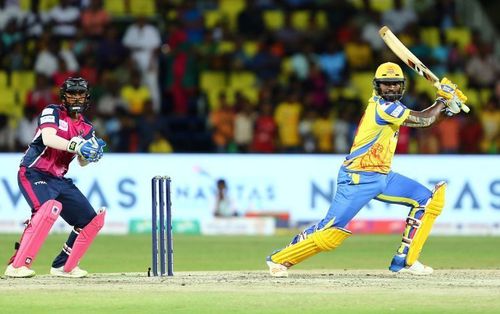
Is the TNPL a boon or a bane for young aspiring cricketers?

The Tamil Nadu Premier League (TNPL) is now into its third year of existence. At this juncture, it would be fitting to evaluate the role of TNPL in nurturing and promoting young cricket talent in Tamil Nadu.
When the tournament first started in August 2016, it was believed that this tournament, a bit of a copy cat of the IPL, would keep the interest of Tamil Nadu cricket fans alive in the absence of their super team Chennai Super Kings for a period of two years. Nevertheless, the main objective was to identify fresh and new talent and give them an opportunity to flourish at a higher level.
In Tamil Nadu, unlike in other states, most of the league matches (except higher divisions), inter-academy matches and inter-school matches are normally played on matting wickets for fair bounce. Moreover, most of these matches are limited to 25 to 30 overs only. As a result, players are not given the opportunity to express themselves over an extended duration, or to improve their technique and temperament to suit the longer format of the game.
This flaw - lack of opportunity and facility at the base level - is clearly noticeable in the young players at TNPL. But the tournament, despite being a T20 league, has opened up the opportunity for many such inexperienced players to exhibit their skills on turf pitches under lights.
At the infant stage, most of these raw players struggle to switch over to the next level in all departments of the game. As a result, we have seen very few players reaching the next level after playing TNPL.
Having said that, the TNPL has given these players a platform at the grassroot level itself to perform. It has given them the chance to appraise themselves in identifying their weaknesses, keeping in context the long hard road ahead of them in their cricketing career.
TNPL and IPL are not directly comparable as the quality of cricket, star value, hype and stakes are totally different. But both the leagues are similar in one aspect: spotting talent.
Thanks to the timely intervention of the Committee of Administrators (COA), no outstation player is allowed to play in TNPL; the emphasis is more on identifying local talent rather than on winning matches at any cost.
If outstation players are allowed in place of local players, it would defeat the very purpose of the league. Besides, you can very well imagine the plight of a poor youth in his formative years bowling to a batsman like a Suresh Raina or a Yusuf Pathan.
In that respect, the TNPL in its present form is a double-edged weapon for bowlers. Being a T20 competition, all the bowlers are expected to go for a lot of runs, more so in the case of young and inexperienced bowlers. Sometimes such bowlers are taken to the cleaners, in the process shattering their confidence.
But if someone wants to learn swimming, he should be thrown into the deep end of the pool. A tournament like TNPL cultivates a fearless, daredevil approach among players. While batsmen learn to be positive from the first ball, bowlers learn to be patient and relentless.
The TNPL has aided the young players to acquire valuable experience in terms of their game and attitude. The young players benefit from the presence of experienced players around them. The presence of an international player like a R. Ashwin has helped the youngsters of Dindigul Dragons immensely. The players would be proud of sharing the dressing room with such stalwarts.
The effectiveness and influence of TNPL on Tamil Nadu cricketers can be gauged by the number of TNPL players graduating to the next level of cricket - Ranji Trophy, Syed Mushtaq Ali Trophy, IPL and so on. One of the earliest beneficiaries of the inaugural TNPL were the lanky left arm fast bowler T. Natarajan and the all-rounder Washington Sundar.
Based on their good show in the first TNPL, they came into prominence and could make it to IPL teams - in the case of Sundar, all the way into the Indian team.
Aside from these two, there were a few other young players like Sai Kishore, Sanjay Jadav, Rohit Ravikumar, Athisayaraj Davidson and Jagadeesan who have reaped the benefits of playing in the TNPL. But the irony is that some young talents who were identified as exceptional players during their school, under-16 and under-19 days were found wanting in the TNPL as they found it difficult to bridge the gulf between their infancy years to the next level. Perhaps more exposure to turf wickets in the future would make them better players.
The batting and bowling statistics of TNPL present contrasting pictures. If you look at the statistics of TNPL 2017, the top five run-scorers were all established Ranji players like Washington Sundar, Kaushik Gandhi, Aniruda Srikanth, Baba Aparjith and Bharat Sankar. Again this year, the top scorers as of now are Aniruda Srikkanth, Arun Karthick, Sharukh Khan and Jagadeesan; except Sharukh Khan, all the others in this list were part of IPL teams.
The TNPL has in fact enabled someone like an Aniruda Srikanth or a Yo Mahesh to resurface into state selection reckoning. Meanwhile, players like Arun Karthick have managed to enhance their reputation in TNPL.
But the point to ponder here is the reason behind the failure of young batsmen at this level.
In the bowling table of 2017, the top wicket takers were all new finds with Sai Kishore leading with 17 wickets followed by Athisayaraj Davidson with 15 wickets and Silambarasan with 12. In this year’s TNPL, at this present juncture, Athisayaraj Davidson is topping the bowling table with 11 wickets, Yo Mahesh with 10 followed by two unknown bowlers Ajith Ram and Rajesh M.P. at 9 wickets.
The highlight of this year’s bowling has been the performance of Karaikudi Kaalai’s Aswath Mukunthan who got a 5-wicket haul against Dindigul Dragons.
The inference here is that the TNPL has been somewhat kind to some of the young bowlers despite the thrashing they have received at the hands of reputed batsmen.
This year’s TNPL saw the emergence of a new ambidextrous bowler in Mokit Hariharan, playing for VB Kanchi Veerans. It is great that the TNPL could unearth a talent like a Hariharan, who can bowl with either hand depending upon the batting style of the batsman on strike.
That brings us to the vital question: does the TNPL justify its existence? If not, what are the changes that can be brought about in making the tournament more innovative and productive?
To answer to the first question is that the TNPL, while only in its third year, is on the right track. But striving to improve in the future has to be a continuous process, and in that context there are a few changes that are needed. Here they are in brief:
1. To start with, the TNPL Committee can increase the strength of the squad of each team from the present 19 players to a maximum of 25 players. That way, more players get to have a feel of the ambiance of the big stage matches. Some of those additional players could be selected from the lower division and some more players from the under-19 and district levels to keep all the players at all levels interested.
2. The TNPL should fix and specify a minimum number of under-19 and district players to be present in a playing XI to encourage that faction.
3. In the coming years, barring national duty, the TNPL organizers should ensure the continuous presence of big guns like R. Ashwin, Dinesh Karthik, Murali Vijay, Washington Sundar and Vijay Shankar. This would not only add a lot of flavor to the tournament, but also facilitate in accomplishing the main objective of the league - mentoring young players.
4. The TNPL can be expanded to more cities in Tamil Nadu to take the game to a wider audience. Moreover, when matches are conducted in limited venues, the pitches tend to slow down half-way into the tournament - a situation that can be avoided by playing in more grounds.
5. The TNPL can take a leaf out of the IPL book and create home grounds for each of the eight teams. By adding more venues and by creating home grounds for each team, the league can attract more loyal local followers.
6. The TNPL being a T20 tournament, should be played on true wickets with some bounce rather than on traditional slow and low pitches. High-scoring matches always attract huge audiences. Further, sporting wickets help prepare the youngsters to face similar challenges when they go outside the state. The TNPL can aspire to prepare different types of wickets at different venues for providing the players better exposure to varying conditions.
7. The TNPL should devise a mechanism to safeguard young players at a tender age from over-exposure to the commercial aspects of the game and from the preying eyes of the media. The TNPL should be devoid of the bright-spotlight menace of the IPL.
8. If the playing window permits, the organizers can look to arrange for matches between the winners of the TNPL and the winners of other state leagues like Karnataka Premier League and Maharashtra Premier League.
9. The TNPL should continue with the present restriction on outstation players, whether capped or uncapped. The presence of quality outstation players will no doubt increase the competitive level of the tournament, but at the same time will deny opportunities to deserving young local talent. If possible, teams can be encouraged to employ experienced outstation players as mentors to pass on their knowledge and experience to the youngsters.
To sum it all up, the TNPL is a very good initiative to promote young talent in cricket, and has proved its worth within a short span of three years. However, it still has a long way to go.
The TNPL has given a platform to youngsters to showcase their talent. It is now up to the players to grab the opportunity and prosper.
With the system in place, it is only a matter of time before we stumble upon a Kris Srikkanth or a Robin Singh.
Follow Sportskeeda for all the updates on TNPL points table, news, results, TNPL schedule, most runs, most wickets and fantasy tips.